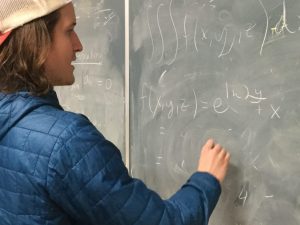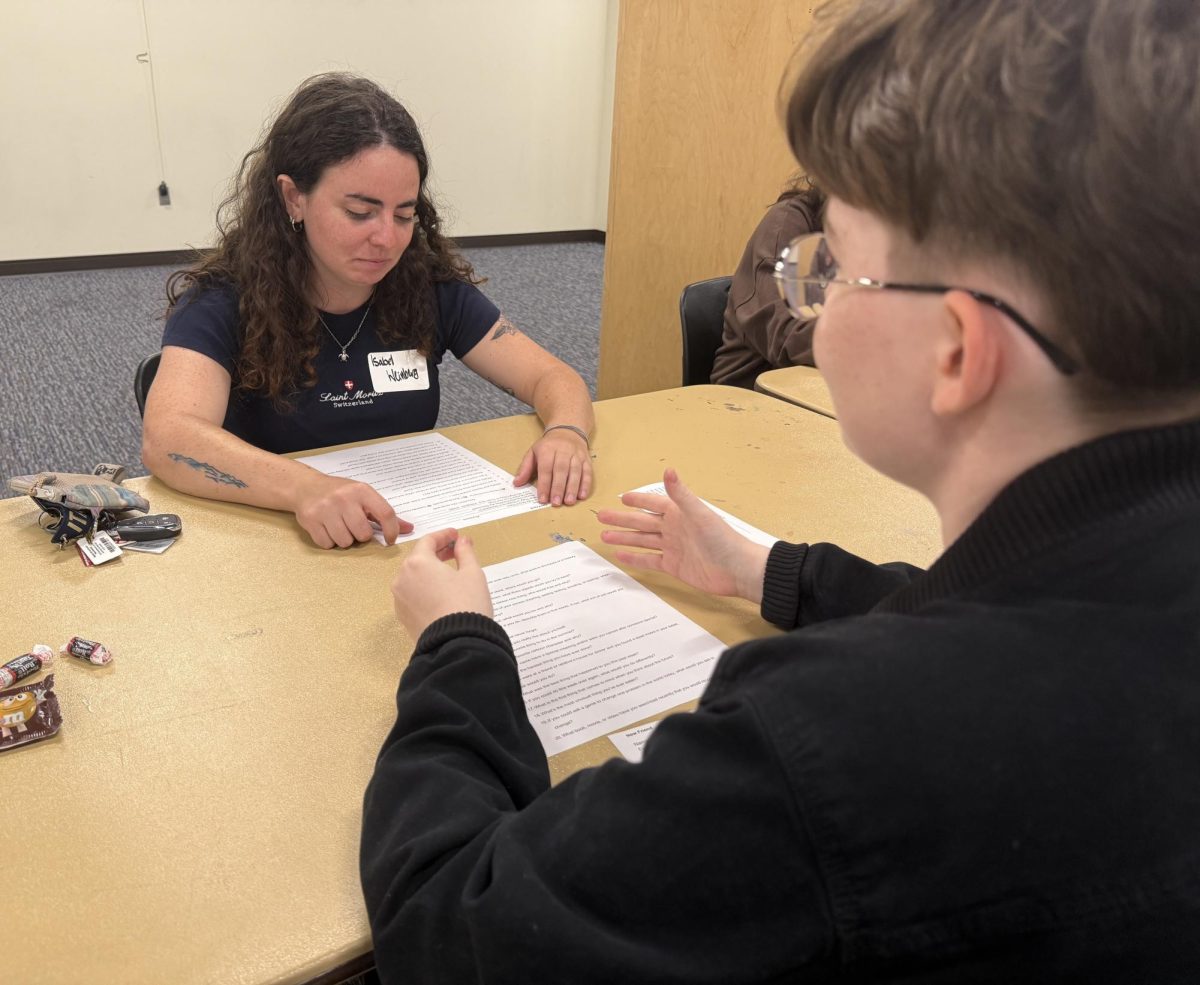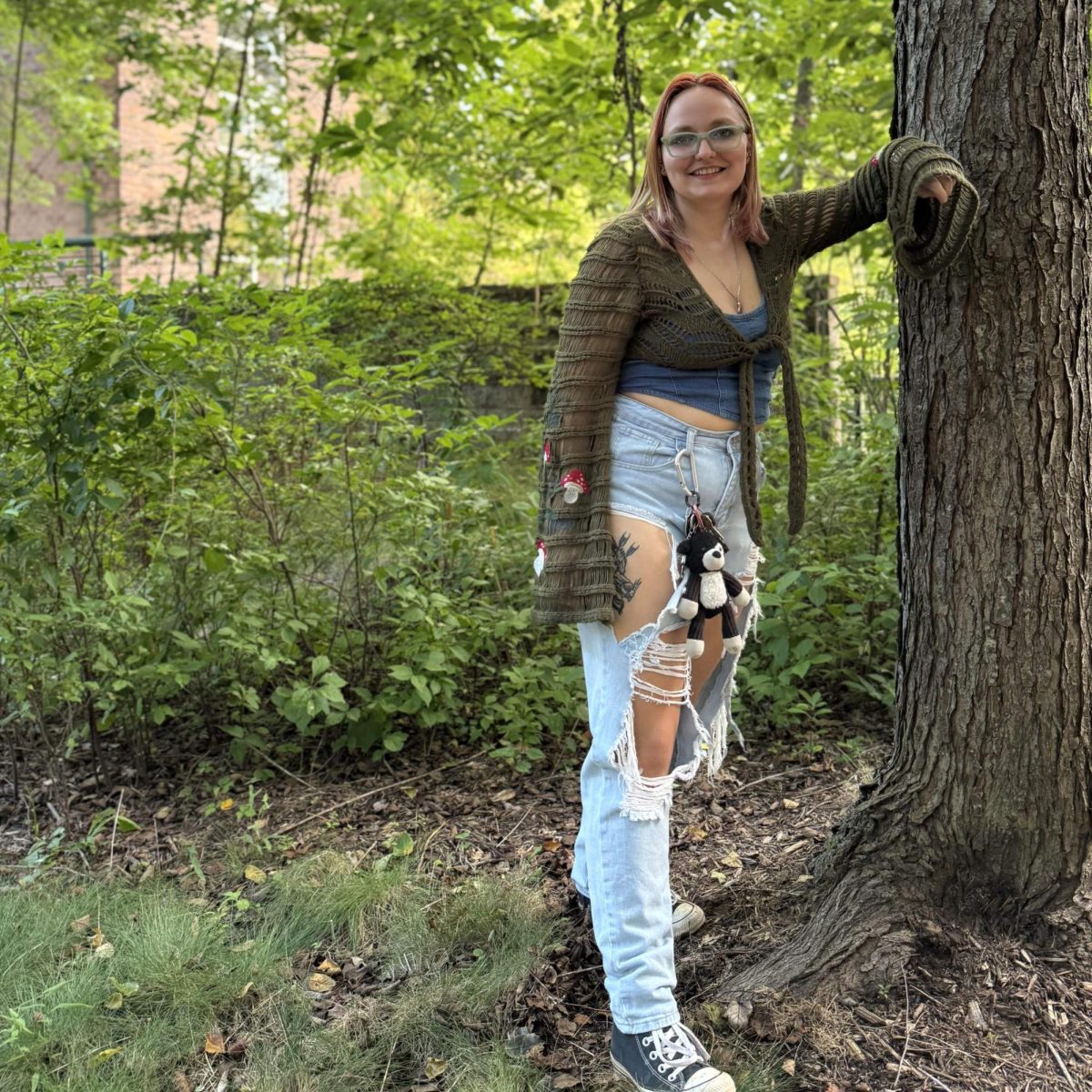Linda Cummins
Multimedia Staff
[email protected]
In a world where so much proves uncertain, one thing UNC Asheville students can count on is Parsons Math Lab being there 68 hours a week to provide the one thing that can be answered with certainty — a math equation.
The answers remain certain. That is what Qurat Khan, math lab instructor, likes about math. Some people are just as certain they will never learn math. Parsons Math Lab has the answer for that.
“I know several people who were not good in math throughout high school,” said Rudy Beharrysingh, math lab director. “It was only when they came back to school that they went on to do more math, even post grad.”
Developing math skills takes time and a lot of practice, Beharrysingh said. Much of traditional math teaching was rote memorization.
“It’s natural for a child to be scared if they can’t do something and are shamed for it,” Beharrysingh said. “Some kids just won’t survive in that kind of atmosphere.”

Students arriving at many colleges then realize they need to take a math course in order to graduate — any math course. But that could be a problem for someone who had the experience Beharrysingh described.
“For some people just saying the word math is enough to make them say, ‘I hate math. I was terrible in math,’” Khan said. “My personal goal is to make math less scary.”
Math anxiety is very common across the world, Khan said. Half her job is not just teaching people how to approach mathematics, it is also being a cheerleader and telling them they can do it, she said.
Learning how to do math means much more than just solving for X, Khan and Beharrysingh agreed.
“Math is about logical and rational thinking. At its core, it teaches you critical analysis,” Khan said. “Math is everywhere.”
Math is fundamental to the world, Khan said. Technology only gets stronger with mathematics, our thought processes only get stronger with math, she said. Khan described math like weightlifting for the brain.
“It makes the brain stronger by making you think through things more logically and teaches you to be a more critical thinker,” she said.
Math can even be applied to a chaos theory, Beharrysingh said.
“Mathematicians are always trying to figure out a way to describe the chaos,” he said. “Maybe there’s an equation to explain the chaos.”
The math field is ripe with discoveries and cutting-edge research, Beharrysingh said.
“We are always discovering more in mathematics, but it doesn’t contradict what we previously knew,” he said. “It follows a system of logic that is irrefutable.”
New discoveries just help to expand on the field.
“In chaos theory, we are trying to find a pattern to the madness,” he said. “Things that appear random may not be so random.”
What is random every semester is which course students need help in, Khan said.
“Some semesters a lot more stat students come in, others I see more calculus students,” she said.
Some nights only a few students show up to work quietly, other nights the room is packed with 20 people.
“It can get really busy especially as finals roll around,” Khan said.
One of the students who visits often is Brian White, a senior environmental studies student with a math minor.
“I come here a lot because they have the math books I can check out,” White said. “All the computers have the math software the professors want us to use.”
White said he benefits from hearing Beharrysingh or one of the tutors explain a concept in a different way.
“Sometimes they ask me to explain a concept back to them and that brings out misunderstandings or make a connection I had missed,” White said.
Khan said she really believes given enough time and resources, anyone can learn math.
“I will do anything in my power to help anyone who walks through those doors,” Khan said.
Parsons Math Lab is open to the public, Monday through Thursday 8 a.m. to 9:30 p.m., Friday 8 a.m. to 5 p.m. and Sunday from 4:30 to 9:30 p.m. The lab is located in Rhodes-Robinson Hall 323.
























